My Cat Merlin is very polite in conversation. He considers his answers carefully.
Author Archives: Garnet David
Humanist Symposium #16, Facing the Void
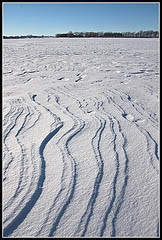 I live in Columbus, Ohio, where we don’t normally get a lot of snow in Winter. But we had a New England style blizzard last night. It’s still snowing and blowing. At times the swirls are blinding. It covers and mutes everything. This snow chaos can be intimidating without warmth and security of a home to watch from.
I live in Columbus, Ohio, where we don’t normally get a lot of snow in Winter. But we had a New England style blizzard last night. It’s still snowing and blowing. At times the swirls are blinding. It covers and mutes everything. This snow chaos can be intimidating without warmth and security of a home to watch from.
As I labored to remove the two feet of snow from my driveway, my neighbor asked incredulously where I had to go on a Saturday. I told her, “I have a performance tonight, unless they cancel, which they probably won’t. The show must go on!” (they did cancel eventually)
I am a classical musician. I have played music all my life. Despite the high stress of the job, I love offering my hard earned interpretation of great classical music for those who love it. Though music has universal appeal, the plight of high quality live classical music is well known. My orchestra is facing a tragic yet familiar fate: Our job security is currently threatened by major cuts and lack of support. However, unlike a corporation, the quality of our music would go down with those cuts. Many musicians would leave, including myself.
Let’s face it. Most of us listen to music as background. Those who actually attend classical concerts are a minuscule part of the population. But is classical music superfluous? Your gut reaction may be “No, classical music is not superfluous”. But would you stand by that view with donations and taxes? Aren’t there a lot more “important” things to support first?
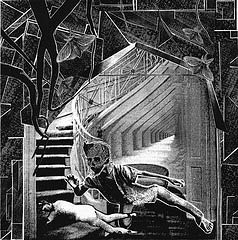 What makes us human? One answer is our awareness of death. Another is awareness of beauty. Other animals live “functionally”, surviving to survive. Humans need something more. We need reminders of our humanity. The Arts are the symptom and the answer to that need. Ever since humans advanced beyond other animals, we have used art to remind and inspire us to something beyond physical survival. Art helps us face the void of death and gives meaning to our lives. Art connects us to each other and to history.
What makes us human? One answer is our awareness of death. Another is awareness of beauty. Other animals live “functionally”, surviving to survive. Humans need something more. We need reminders of our humanity. The Arts are the symptom and the answer to that need. Ever since humans advanced beyond other animals, we have used art to remind and inspire us to something beyond physical survival. Art helps us face the void of death and gives meaning to our lives. Art connects us to each other and to history.
I recently read “The Agony and the Ecstasy” by Irving Stone, a fictionalized but fairly accurate account of Michelangelo’s life. I’m not much of a history buff, but this book awakened a sense of the importance of the Arts to Humanity.
 Michelangelo suffered through the ups and downs of political regimes and endured by his passion to create lasting beauty. His career began during the upsurge in support for the Arts during the Renaissance, when the power and meaning of ancient Greek and Roman art was rediscovered. During his long life several popes came into power who had no appreciation for the arts. He starved for work. Luckily they didn’t last long and we have Michelangelo’s enduring legacy is the result.
Michelangelo suffered through the ups and downs of political regimes and endured by his passion to create lasting beauty. His career began during the upsurge in support for the Arts during the Renaissance, when the power and meaning of ancient Greek and Roman art was rediscovered. During his long life several popes came into power who had no appreciation for the arts. He starved for work. Luckily they didn’t last long and we have Michelangelo’s enduring legacy is the result.
Yet what would have happened without the Renaissance and its support for enduring art? Would our civilization have endured? It’s impossible to say, but I have a feeling not. Look as the results in purely political cultures created by communist dictators such as Mao Tse Tong and the purely moralistic religious cultures fostered by Islamic extremism. The Arts are a mirror, a reflection of who we are, who we were and who we could become. Call the Arts a “checks and balance” for political and religious extremes.
 If you will allow me to jump ahead a bit, the problem with American culture these days is not lack of morality, as many religious conservatives insist, but a dangerous coupling of cultural secularism and the simplistic moralism of politicized religion.
If you will allow me to jump ahead a bit, the problem with American culture these days is not lack of morality, as many religious conservatives insist, but a dangerous coupling of cultural secularism and the simplistic moralism of politicized religion.
In the heyday of secularism, there was an philosophical underpinning to its culture which maintained the importance of the Arts to the long term survival of humanity. In Europe as in early America, support for the Arts was considered a given. European cultures still maintain strong government support for the Arts. American culture has slipped dangerously toward the empty secularism of pure Capitalism.
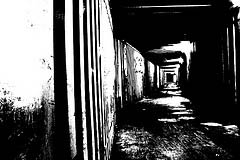 Back to the threat to my job as a musician. Many would argue that the market simply can’t support an orchestra in this city and we have to face reality. I say no. It’s a symptom of American culture not facing the void of its own dissipation. Music is not a luxury. It’s a vital expression of cultural health. It’s exercise for the cultural soul. Without it we become myopic and begin to believe that our own comfort and survival is all that matters. We take a tiny but significant step toward reverting to animals.
Back to the threat to my job as a musician. Many would argue that the market simply can’t support an orchestra in this city and we have to face reality. I say no. It’s a symptom of American culture not facing the void of its own dissipation. Music is not a luxury. It’s a vital expression of cultural health. It’s exercise for the cultural soul. Without it we become myopic and begin to believe that our own comfort and survival is all that matters. We take a tiny but significant step toward reverting to animals.
The real story of the threat to my job lays behind the scenes. Columbus is the 15th largest city in the country and it’s growing at a healthy rate. My orchestra is around 30th in budget compared to others in the country. And the powers that be in Columbus believe they can’t support even that. This belies the weakening cultural health of America on many levels. Lack of philanthropic spirit is one. Cold capitalism is another. Both are downgrades in humanity’s operating system.
Beyond that, it is clear to me there are conspiratorial and malevolent actions being taken by those “powers that be” to undermine the solidarity of our musician’s union. If the Arts reflect cultural health, Labor Unions represent healthy solidarity of labor. Without that, again, we are one step closer to being animals. Dog eats dog is already a prevalent culture in the American workplace. “Sorry you lost your job, but I got my promotion and that what matters to me.” The proposals for cuts in our orchestra are of that ilk. Some of us would lose our jobs and others not. The powers that be are hoping to divide and conquer.
The insecurity of my future brings me to face difficult questions. How will I act under the threat of unemployment? Will I betray my colleagues for my own survival? What of the morality of those who are trying to squeeze us to death? Are they God fearing Capitalists (an oxymoron?) or just realistic pragmatists? How stridently can I cry for public support of the Arts before being labeled anachronistic. The choices I make affect my life and others.
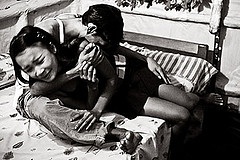 How does all this relate to the current humanist symposium? As I glanced though the twelve articles submitted, I could weave a common idea through most of them; Being human means facing the void and dealing with it. Awareness of death and oblivion is the inspiration for both art and religion, for love of life and beauty, for any aspect of culture which goes beyond animal survival. But while religion clings to superstitious texts and beliefs, humanist culture is open to free thought, science, philosophy and art to help us grapple with facing the void.
How does all this relate to the current humanist symposium? As I glanced though the twelve articles submitted, I could weave a common idea through most of them; Being human means facing the void and dealing with it. Awareness of death and oblivion is the inspiration for both art and religion, for love of life and beauty, for any aspect of culture which goes beyond animal survival. But while religion clings to superstitious texts and beliefs, humanist culture is open to free thought, science, philosophy and art to help us grapple with facing the void.
The title of the last submission Separation Anxiety, gave me the spark. It brought to mind a book I read recently by the Buddhist Psychiatrist, Mark Epstein. The book is Going to Pieces without Falling Apart. In it he describes how children who’s parents allow them to explore the void of being alone without danger of being abandoned grow up forming a healthy, balanced identity which incorporates the void without undue fear. Children who are unloved or abandoned inappropriately do not adapt to the inevitable experience of the void, and become insecure and unbalanced adults. What struck me was another angle on this idea. Children who were too closely monitored and smothered by parents also had a dis-functional outcome because they lacked enough experience with the void.
Taking the articles in the order they came to me, Stephen Thomas of Rational Apologetics writes from the heart in Life after God. He writes what so many of us think daily, that a god is not needed to love life and beauty, to choose to be good for that love and its benefits. It’s so painfully obvious, isn’t it? Or is it?
Phil for Humanity offers some practical advice for all humans: Accept it and move on.
Christian of Free Thinking Joy submitted Free Will is Deciding to Have It, where he ponders the paradox of free will. Are we just bio-robots or can we choose how to act? Choice may be an illusion, but a vital one. His conclusion is that the illusion of free will is more human, and fun, too. Our culture affects our attitudes and choices. If we know the value of something beyond our own experiences, we will make choices to support it. Collections of individual choices adds up to a larger picture which affects us all. Choosing to believe in free will is the beginning of creating a conscious culture which benefits all.
Greta Christina’s Blog explores human fragility in the face of pain with On Illness, Bodies and This Free Will Thing, when we often become all too aware of the Void. Fear and pain are powerful destablizers to our humanity. Free will becomes all the more difficult when our mortality is exposed.
Roxanne of The Sensual Life writes about the act of creating in How to Be God. When we take on the responsibility for creating our own lives, the pressure it on. Her toddler builds a mega structure out of Lego. When he decides to control its fate by knocking it over, he shows us the joy of the process may over-shadow our fears if we stay with it. Fear of the void can be alleviated through play and perspective.
Mathew of Wild Philosophy states what I tried to show in my own article above in Worthwhile Freedom; the idea of human freedom is being bankrupt by both libertarian and conservative rhetoric in this country.
Alonzo Fyfe of Atheist Ethicist posted some thoughts inspired by an article which appeared in a series at the Salk Institute called Beyond Belief: Enlightenment 2.0, E2.0: Peter Atkins: On Pride and Chemistry. He clarifies the distinction between healthy pride in one’s own value humbled by a mortal existence and that of religions which presume to know the answers without any proof. His multi-post series sounds very interesting.
Greta Christina submitted another good article on the growing body of evidence supporting the genetic universality or morality in The not so Logical Conclusion: On Morality of Atheists and Believers. I can’t help but add my own comments. The Dalai Lama has explored much of this evidence in support of his own belief that morality is inherent to humans, and that any lack of morality is misguided and misdirected fear of the void.
Jeffery of Disillusioned Words posts a convincing humanist argument for being anti-abortion in Abortion (a secular response to Richard Dawkins). He is not anti-abortion, but anti-suffering.
Chris of Uncredible Hallq presents his ideas on the tricky nature of researching happiness with Against Happiness (or at least the tendency to profess it in surveys). Happiness comes and goes. Appreciating that fact (like the child who gleefully plays with the void by knocking down his Lego tower) helps us know what real happiness is. Wishful thinking is not the same thing.
VJack of Atheist Revolution discerns the subtle but important distinction between atheists and anti-theists in Meditations on Anti-theism. According to him, the true anti-theist is dangerously close to the one-sided thinking of theist, where as the atheist simply doesn’t believe in a god. Sam Harris would then be an anti-theist, fervently preaching the dangers of theist thinking. I’d say I’m in that group. I may not know what the void holds for me, but I do know how many people suffer because of wrong headed theistic thinking.
Finally, Therapydoc of Everyone Needs Therapy reminds us of the importance of Identity and Purpose with Separation Anxiety. The post is more that the title suggests. It’s worth the read.
In order for humans to collectively improve, we need to continue to explore these important issues of free will, identity, purpose, intuitive love of life and beauty. We need to challenge views and actions which carve away at our humanity and the gains we have made collectively toward the betterment of all humankind. I am presumptuous enough to assert that the Arts are a vital part of that picture.
Thank you all for your high quality submissions. The next Humanist Symposium will be March 30th at Mind on Fire. To submit go to blog carnival form or send an email to ebonmusings@gmail.com. Again, the symposiums home page is The Humanist Symposium at Daylight Atheism.
Humanist Symposium Blog Carnival Coming Soon
Understanding Detachment
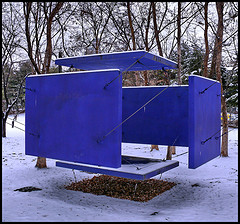 People often think of the Buddhist idea of detachment as something cold and distant. The truth is, detachment occurs naturally when you understand how it is inherent in consciousness. It’s like being shown how a car is driven. From the outside, it looks as if the car is driving itself. But once you know there’s a driver, then the car becomes the vehicle being driven by someone.
People often think of the Buddhist idea of detachment as something cold and distant. The truth is, detachment occurs naturally when you understand how it is inherent in consciousness. It’s like being shown how a car is driven. From the outside, it looks as if the car is driving itself. But once you know there’s a driver, then the car becomes the vehicle being driven by someone.
I found the following quote by Alexander from a short article called Practicing Detachment: A short introduction to the F. M. Alexander Technique for Buddhist Practitioners. Alexander discovered, quite unwittingly I believe, a Western path to what has been for the most part an Eastern philosophical skill.
The fact to be faced is that the human self was robbed of much of its inheritance when the separation implied by the conception of the organism as “spirit”, “mind” and “body” was accepted as a working principle, for it left unbridged the gap between the “subconscious” and the conscious. I venture to assert that if the gap is to be bridged, it will be by means of a knowledge, gained through practical experience, which will enable us to inhibit our instinctive, “subconscious” reaction to a given stimulus, and to hold it inhibited while initiating a conscious direction, guidance, and control of the use of the self that was previously unfamiliar.
I suggest that only those who become capable of translating into practice what is involved in the procedure just described can justly claim to have experienced detachment in the basic sense.
F. M. Alexander, The Universal Constant in Living, 1946
Why I Am a Classical Musician
I carve a tiny piece of wood off the base of the reed. The shaving isn’t much larger than one or two hairs of daily growth on a man’s face. Almost nothing. I put the reed back on the mouthpiece and fasten it with the ligature. I form an embouchure and play the scale I repeat hundreds of times a day to check reeds. The raspiness has gone from the reed’s vibrations. The difference is huge. Now it has a bell-like ring as it pings through the instrument. Ahh!
After 2 hours of working on reeds, I am tired. Add five hours of rehearsals today and that’s a full day. But I haven’t finished. I still need to review specific sections of this weekend’s music. And the reed I just fixed might not make it through five minutes of playing, with the time spent on it lost after that.
Why do I do this? I smile as I ask myself. “Because I love it†might be one answer. But that’s not quite it. It’s more like an itch I have to scratch. From age 12 on I had the “ring†of the clarinet’s tone in my head, an ideal to strive for. Such a goal is elusive; it shifts and hides moments after being within your grasp.
Reeds are part of the problem, but so is being human. I am not a machine. I have to eat and sleep. I get tired. I have good days and bad. Yet the goal is always there; to outdo myself. Like an athlete wishing to win the Olympics, I strive for perfection with an all too human body and life. I may not always achieve it. But the striving tenures me to strong and tenacious character.
Of course, playing the instrument alone is only part of this puzzle. I am a clarinetist because I love music. Why do I love classical music so much?
As I ponder this question, my ear wanders to a CD playing of Bach’s Goldberg Variations performed by Andras Schiff. It’s a new recording for me. I have at least four recordings of this piece by different performers. Each player creates something fresh with their interpretation. So while the music is very familiar to me, it sounds new in this pianist’s hands.
Bach’s variations are accessible, dancelike and intimate, humorous and poignant. One in particular, the 26th, breaks my heart each time I hear it. I hang on every note. Schiff’s version is surprisingly feminine and coquettish, but with amazing facility and control. The tone of the particular piano he plays is also exquisite.
This brilliant music, and the performance, seems to come from somewhere beyond human capabilities. Yet it reflects human emotions in a crystalline way. It says something to me which I cannot articulate. It tells me who I am and who I could be. It reminds me of my humanity and my frailty, my nobility and my baseness. It reaches across ages, like sculpture or painting, and shows me how history and art has formed me and the civilization I live in.
Classical music offers a place of sanity in a harsh world. It clears the haze of daily life and allows us a glimpse of the thoughts and feelings of great people and a connection to our higher selves. And of their vulnerabilities. Who wouldn’t want to be inside Einstein’s head, or Picasso’s or Martin Luther King’s, as they thought and felt their great deeds? Well, I do. My life’s commitment is to be the instrument which recreates the vision of great composers for others.
Unlike painting or literature, classical music is experienced directly in time. Though I enjoy recordings of great pianists and orchestras, I relish hearing one as it happens. A live performance reflects a unique snapshot in time, much like sports are reality in action. Just like the excitement of a supportive crowd in sports, the audience affects performers with their attention and enjoyment. In a live performance, the history of today day can cue a great performer to fresh new depths of expression and heights of emotion for those listeners.
Orchestral performances are an intersection of many parts. First you have the music itself and the history of its style, something like recreating Van Gogh’s Starry Night. Then you have the particular orchestra and conductor, the “repainters”, if you will. Each member of the orchestra brings their own ideals and experience to the table, which then has to amalgamate into one voice. Then there are the acoustics of the hall, and the audience’s interest. It comes together each time to form a unique experience. When it all gels and the energy builds towards perfection, a particular performance can become an epiphany for all concerned.
Back to my own life and career. I may fix numerous good reeds at home, but few withstand the test of playing in my hall. The acoustics are deplorable, sadly, for the orchestra and especially the audience. This is not a concert hall, but a movie theater. It is not meant for the sublte voice of great music. I need a dense, resonant tone to carry my musical intentions to the odd corners of the cavernous room and the ears of listeners. Dozens of hours of work are usually spent to find the right reed for the hall, one which responds in the weather of that day and the demands of that night’s music.
Recently, I have been experimenting with other aspects of tone production, especially mouthpieces. When I first got this job 18 years ago, I had a great combination of reed type and mouthpiece which fit perfectly with the hall. I thought it was all the practicing I had done before winning the audition. I was naive. When that mouthpiece warped, ruining it, I searched for a decade and never found one with such beauty of tone. In the process I became a better musician. But it wasn’t without its cost in tens of thousands of dollars and countless hours and stress. Somehow I wonder if it’s worth it. I warn students of the gravity of choosing a music career.
All this thought and activity is before I play a note in a concert. In a live performance, a musician is naked. No second takes. Even beyond practicing clarinet, I have worked a great deal behind the scenes to make it seem “effortless†on stage. I have studied various techniques for focus and presence in order to overcome fatigue and stress from so many hours of repetitive practicing.
In truth, much of my daily life since age 12 has been working toward the present performance. The goal may be ideal, but a human plays for it. Personally, I play better when I know I am being heard and appreciated. A great conductor helps bring my focus together, as does a great audience.
When the concert finally begins, the first note is a commitment to the rest of the piece and to my colleagues. Egos may clash on and off stage, but conflict usually disappears as the conductor raises his baton and we come together to go beyond ourselves. All my work may or may not pay off this time. Even the best athletes trip.
Is it worth it? All this for the love of great ideas!? I guess that tiny shaving of reed is worth a great deal to me.
